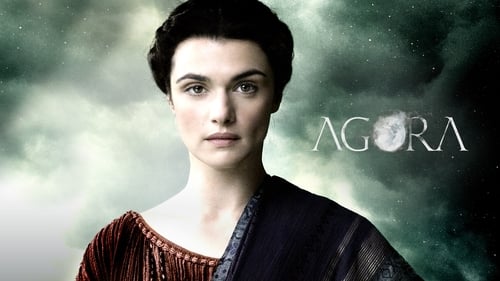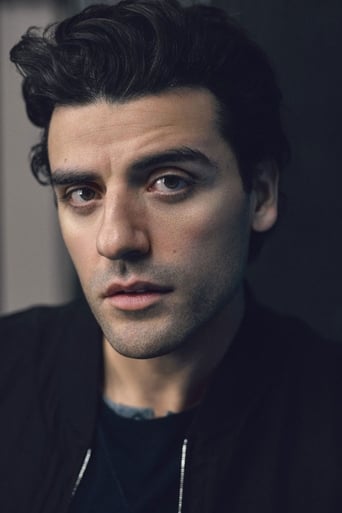Phonearl
Good start, but then it gets ruined
Comwayon
A Disappointing Continuation
Ariella Broughton
It is neither dumb nor smart enough to be fun, and spends way too much time with its boring human characters.
Francene Odetta
It's simply great fun, a winsome film and an occasionally over-the-top luxury fantasy that never flags.
adonis98-743-186503
A historical drama set in Roman Egypt, concerning a slave who turns to the rising tide of Christianity in the hope of pursuing freedom while falling in love with his mistress, the famous philosophy and mathematics professor Hypatia of Alexandria. Agora benefits from an incredible perfomance from Rachel Weisz in the title role and Oscar Isaac in a supporting role long before X-Men and Star Wars. The acting from the rest of the cast is also great, the settings and the locations are outstanding and the overall direction superb. Overall a great movie in general even if i didn't like the ending and the fact that some "masks" were thrown down from religions and it's people. (8/10)
Julesecosse
Somewhat ponderous at times, then explosive episodes, in which there is a lot of action.I like ancient Roman fiction; and this is a deviation from the norm, which is unexpected. Rachel Weisz seems to have put heart and soul into this, as if she really believes in the film's message. At times, it wanders into doco territory with learning at the core; the fictionalised aspect seems unrealistic, but apparently is backed up by historical sources. I would recommend to historical fiction fans, but the layperson might not find much of interest here.
SnoopyStyle
It's 4th century AD Alexandria. It is still a Roman city but Christians are a new force to deal with. The empire is crumbling. Hypatia (Rachel Weisz) is a modern woman scientist and teacher with modern views of astronomy. Her student Orestes (Oscar Isaac) and her slave Davus (Max Minghella) are both in awe of her. Christians are hated and put down by most Romans. Hypatia tries to be treat everyone equally. The Christian agitator Ammonius converts Davus. Orestes tries to win Hypatia over but she rejects him. The Romans rally to kill the Christians for an insult to the gods, but it turns into an all out fight. The Romans retreat to the library. First there is an uneasy truce. The library is sacked. Peace generally returns but Christians continue to agitate. Learning is lost. Fanatism and zealotry descend on the community. Religious intolerance reign. Hypatia tries to advance learning but her place in the world becomes more and more precarious.Spanish director Alejandro Amenábar is taking on a lesser known historical drama. For the most religious viewers, this will seem like a diatribe against Christianity. There is certainly a distaste for religious rigidity. This is more of a history lesson. The science is interesting but probably not compelling for the general public. What this movie needs more than anything is humanity. The movie basically displaces human love with love of science. Rachel Weisz is playing this character so coldly. And I don't like the pulling back of the camera to a global view. It distances the audience from the characters. It does get heavy handed. The story works just enough and unique enough to be worthwhile viewing.
ashleybmeyer
Great movie but it's not really *about* Hypatia. As in, the protagonist is not Hypatia. We switch between experiencing the three lead male characters' reactions to her and feelings about her. Rarely are the scenes and interactions about understanding Hypatia's mind or views or feelings; just understanding how her personality and actions effect the mind and feelings of the men around her. Her character is actually sort of just a Manic Pixie Dream Girl.It's a shame that the best movie about the first well-known female scientist can still fail the Bechdel Test. I'm not sure if there was even a single other female character in this film (other than extras). And while this movie is a remarkably accurate depiction of the historic events of Byzantine Alexandria, of the Christian population gaining influence and forcing women out of the aristocracy, this film's protagonists and target audience are men, and female viewers have little to relate to in the interactions of the characters.






